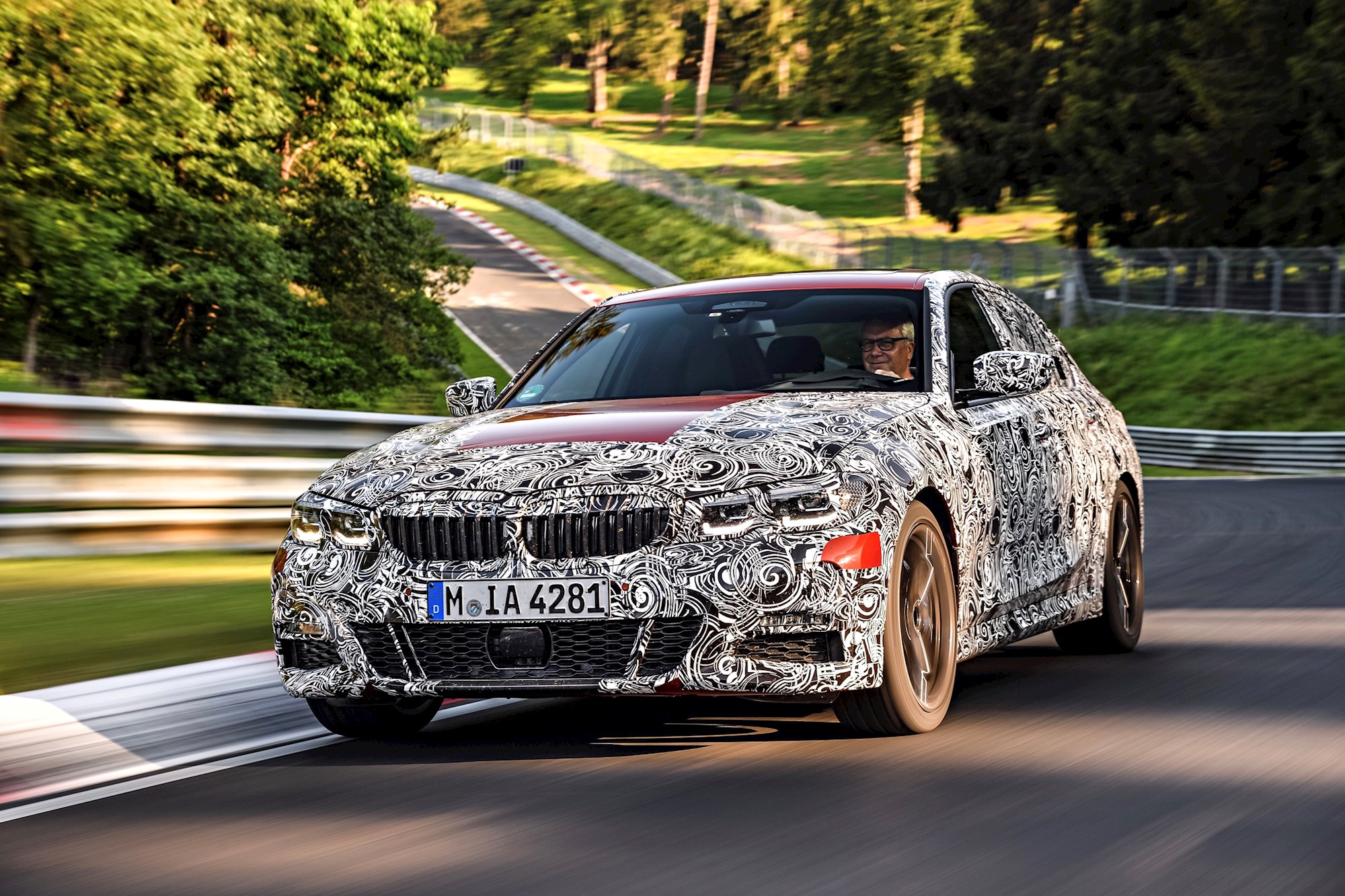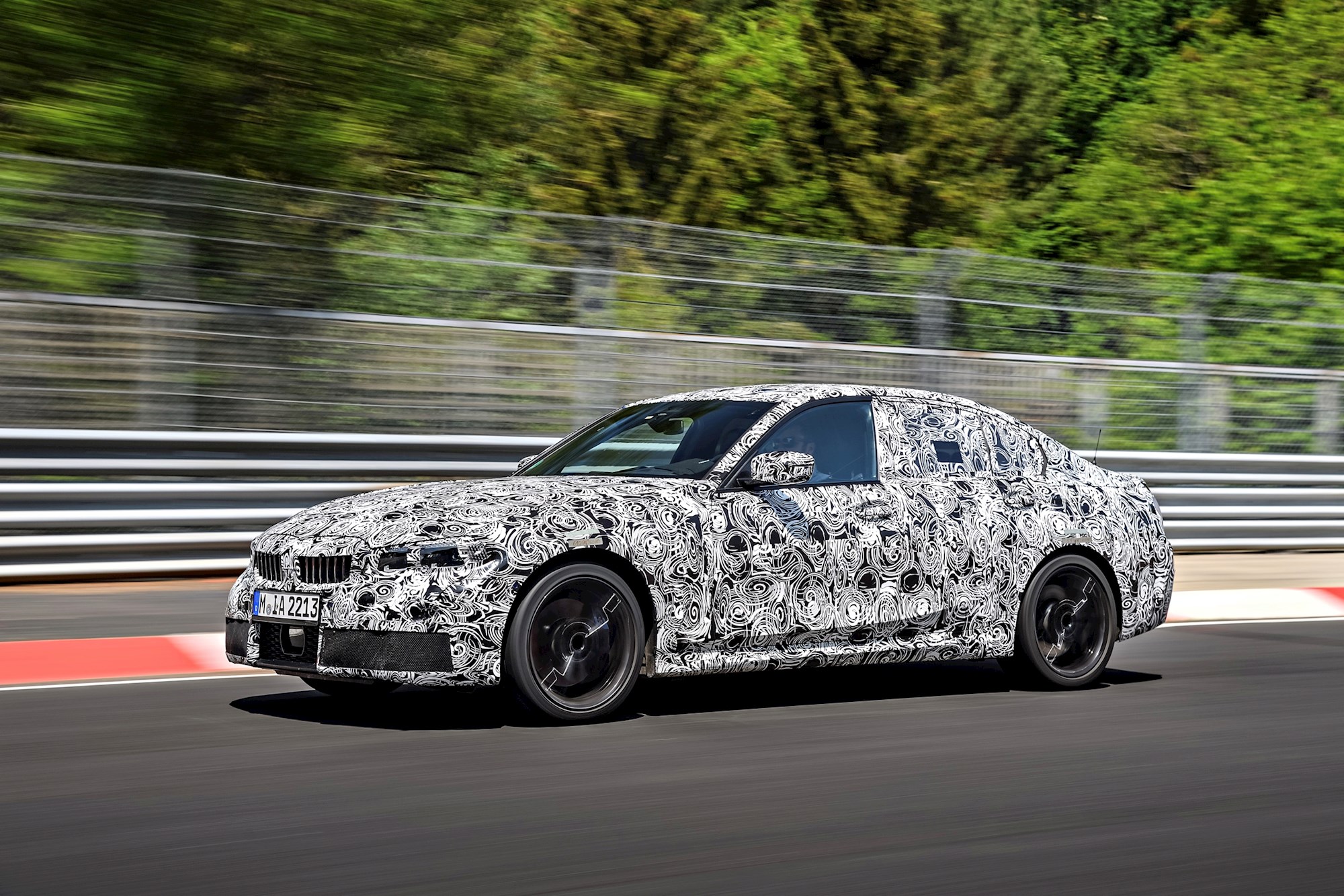BMW have confirmed the first details about the next generation 3 Series Sedan which is expected to be revealed in full before the end of they year.
Currently a fleet of camouflaged prototype 3 Series Sedans are in the midst of completing a 'crucial stage' of dynamic testing and set-up runs at the the legendary Nürburgring circuit in Germany.
Traditionally BMW use the 20km circuit to fine tune the suspension of new BMW models and the new 3 Series is no different. As well the springs, BMW engineers have been honing the sedans steering, damping and brakes to optimise ride comfort and dynamic performance, two areas where the 3 Series traditionally excels.
Read more: 2019 BMW Z4 Roadster leaked

While the engineers tinker with endless adjustments, BMW have confirmed a few changes that will make their way to the new production car.
The centre of gravity is 10mm lower than in the predecessor and axle load will be balanced perfectly with 50:50 weight distribution. The next 3 Series will also be significantly lighter by as much as 55kg.
The front and rear axle in the new BMW 3 Series Sedan is claimed to be lighter and more rigid, too, with the 3 Series confirmed to debut the first ever lift-related dampers ever to be fitted in a BMW model.
BMW say the new lift-related dampers will reduce vibration from bumps on the road during hard cornering, offering a sporty or comfortable spring rates in one package. The lift-related dampers are a standard feature in the new BMW 3 Series Sedan. The car's handling and steering also benefit from expanded track widths with increased wheel camber.

"We're using the lift-related dampers as an active set-up element so as to create supreme driving properties in all conditions," explains Peter Langen, Head of Driving Dynamics.
"With short spring travel, a sensitive damping response ensures comfortable vibration compensation. When the car passes over large bumps, the body movements are controlled by increased damping forces."
Read more: New face of BMW revealed with 8 Series Coupe
They also form part of the M sports suspension, which lowers the car by 10 millimetres on 18-inch alloy wheels. In the M sports suspension spring rates are around 20 per cent higher than in the standard suspension.
This means the difference from the standard suspension is much more perceptible than before," said Langen.

"We've also made the M sports suspension much sportier, with more rigid bearings and stabilisers, harder springs and additional body struts."
BMW say the new 3 Series -likely a 320i equivalent - will use a heavily revised 4-cylinder petrol engine that's set to be the most powerful 4-cylinder ever to be fitted in a BMW production car. The new engine will drink 5 per cent less fuel thanks in part to a further development of the company's 8-speed Steptronic transmission. A new particulate filter will also reduce emissions, enabling it to meet the Euro 6d-TEMP exhaust standard.
The variable steering ratios have been reconfigured for the new BMW 3 Series Sedan and the M sports differential will feature an electronically controlled locking function.

"Unlike conventional mechanical locks, the regulated M sports differential can optimise so much more than just traction," says Langen.
"In addition to cornering dynamics, there is a particularly tangible increase in drive stability in the event of load changes, for example. This allows the new BMW 3 Series Sedan to be driven remarkably confidently and effortlessly even when travelling in dynamic style."
The new BMW 3 Series is expected to debut at the Paris Motor Show in October.



















